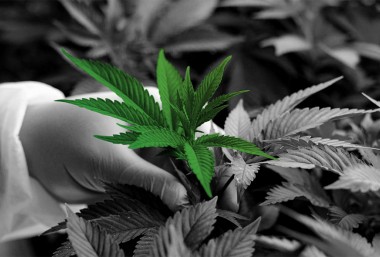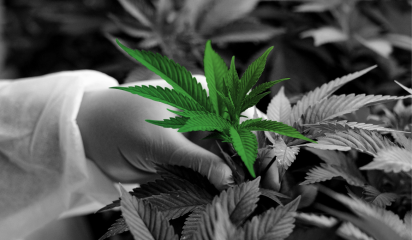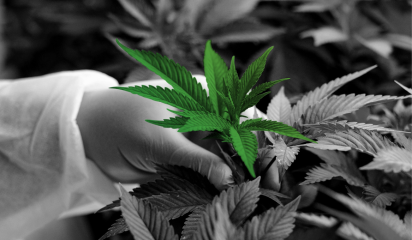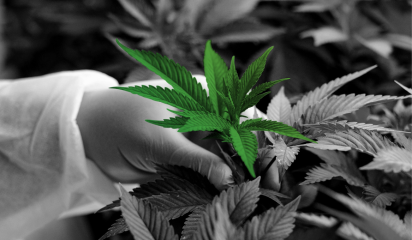It has been a big year for cannabinoids in New Zealand.
From 1 April 2020, New Zealand’s medicinal cannabis scheme was launched. New Zealand now allows specifically licensed doctors to prescribe cannabinoid products to patients. Coupled with these prescriptions, manufacturers can legally produce the medication locally—in theory at least. The Medicinal Cannabis Agency, doctors and manufacturers are still working through minimum quality requirements, licensing, import and export.
And of course, we recently voted by the narrowest of margins NOT to legalise recreational cannabis.
Some big changes, some incremental steps, and all of them impact manufacturers and service providers’ intellectual property strategies.
Why ‘cannabinoid’ and not ‘cannabis’ or ‘marijuana’?
This is a technical issue, rather than a legal one. It comes down to what’s in each product. Cannabinoids are the compounds found in the cannabis plant. They’re what make the medication work, or give the recreational user their high. And there are lots of them—currently 144 known varieties.
Cannabis is the plant. Marijuana is disparaging jargon for a particular type of cannabis plant.
When talking about medicinal products, it’s the cannabinoids that we are interested in and how strong those cannabinoids are.
And hemp? Hemp causes confusion because people and governments around the world aren’t too sure how it connects with cannabis. Hemp is one variety of the cannabis plant. It is used for its fibre more than anything. The level of cannabinoids in it are minimal.
How do the law changes affect your trade marks?
The global medicinal cannabinoid market is a multi-billion dollar industry. New Zealand manufacturers have an opportunity to start exploring their place in that market. And a strong trade mark can give you a head start.
Trade marks tell consumers who you are. They give you a point of interest. And they are a saleable asset for your business. Trade mark protection is therefore important to think about.
The industries connected with the cannabis plant are wide-ranging. From greenhouse manufacturers to provide the controlled environment necessary to regulate quality, to pharmaceutical manufacturers, through to vape providers and hemp-based clothing manufacturers.
Whether you can get trade mark protection at all for cannabis/cannabinoid-related products depends on the product and on the country.
Greenhouse manufacturers should have no issues. There is theoretically nothing preventing the registration of a trade mark for greenhouses, providing the trade mark meets your standard registration requirement of being unique and distinctive, of course.
Hemp-based product manufacturers have options but need to take care. Some countries do not allow the registration of anything obviously hemp-related. If your trade mark has the word ‘hemp’ in it, you might struggle. The Intellectual Property Office of New Zealand (IPONZ) has strict guidelines on what will, and won’t, be allowed to register. They come down to whether the product is legal. For example, you can register a trade mark for ‘hemp seeds’, but you cannot register one for ‘hemp’.
Recreational cannabis trade marks in New Zealand are a no-go. Trade marks with words like ‘hemp’, ‘marijuana’, or ‘cannabis’ covering smoking or edible products won’t be able to register. If your trade mark doesn’t have any indication what it is for, you might be able to get some registered protection. But as you can’t use the trade mark for recreational cannabis products, that protection has limited value.
Which brings us to medicinal cannabinoid products, and related items such as vapes. In theory, you can now register trade marks for products with medicinal cannabinoids in them, even if the trade mark has the word ‘cannabis’ in it. But the path is never that smooth. If a trade mark is likely to cause confusion, IPONZ will refuse it. So, a trade mark with the word ‘cannabis’ in it will be refused if it covers generic terms such as ‘pharmaceutical products’, or ‘supplements’. It must be clear that the products being covered relate to medicinal cannabinoid.
What you need to think about when protecting cannabinoid-related trade marks?
Trade mark protection in the cannabis world is fraught with hurdles. So, remember a few key points:
- Avoid words like ‘hemp’, ‘cannabis’ or ‘marijuana’ in your trade mark.
- Think about the specific products or services you want to provide.
- Talk with a trade mark expert – they can save you time and money.
For now, it’s time for New Zealand manufacturers and service providers to take a leap into the world of cannabinoids and the protection of the associated brands.























